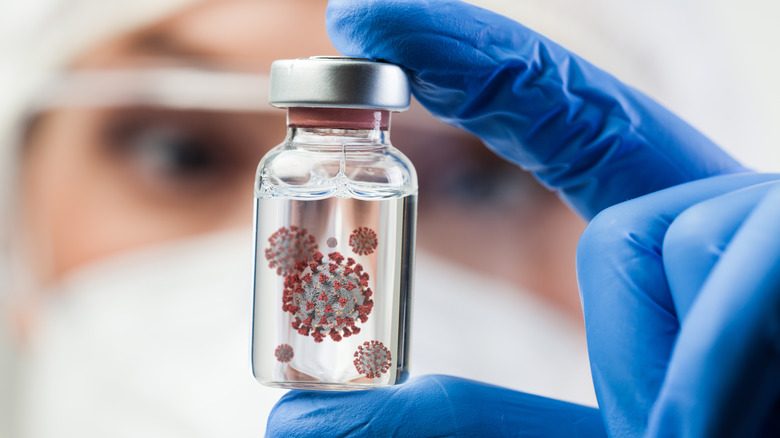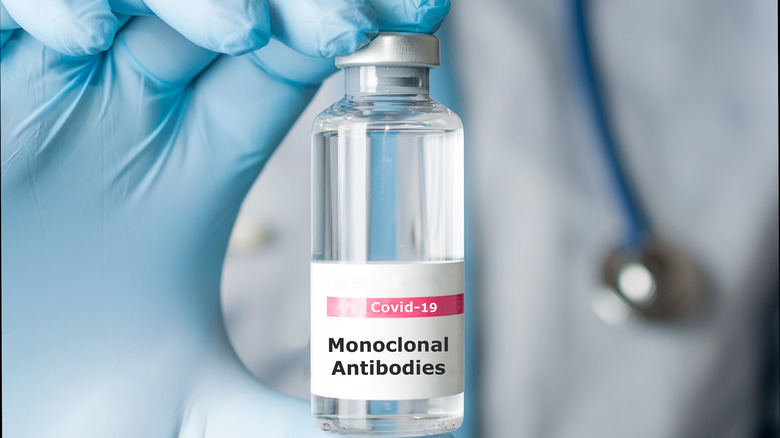Omicron BA.2.12.1: Everything We Know About The New COVID-19 Variant
It wasn't long ago that we emerged from the Omicron BA.2 variant surge over the holiday season into the new year. Now, a new Omicron subvariant has been detected, deemed the Omicron BA.2.12.1 variant, reports Medical News Today. Within the last two weeks alone, cases of this new variant have risen across the United States. CDC data showed that as of April 16, BA.2.12.1 accounted for 19% of new cases, as reported by Reuters. As of April 23, that percentage has jumped to nearly 29%, per Medical News Today.
Due to its high transmissibility, some experts believe BA.2.12.1 is likely to supersede BA.2 as the new soon-to-be dominant strain across the country (via Medical News Today). Current data suggests this new COVID-19 variant may potentially have higher transmission rates than previous Omicron variants. However, whether or not it poses an increased risk for complications remains to be seen. Board-certified pulmonologist, internist, and critical care specialist Dr. Fady Youssef explains, telling Medical News Today, "Thus far, it does not seem to cause more severe disease than Omicron. However, we need further data before we can definitively say."
BA.2.12.1 symptoms, severity, and treatment efficacy
Certain COVID-19 symptoms have shown up more predominantly in some strains than others. For example, Delta cases often presented with sore throat, runny nose, or headache, but with fewer instances of cough or loss or changed sense of smell, reports Yale Medicine. In contrast, Dr. Dana Hawkinson, medical director of the Infection Control and Prevention program at the University of Kansas Medical Center, told Medical News Today that BA.2.12.1 is likely to exude more respiratory symptoms, stating, "Early data also suggests BA.2.12.1 has increased ability to infect the lower respiratory tract (lungs) compared to BA.1 Omicron, which could be one factor in its overall risk of severe disease."
Vaccination and protective measures such as mask-wearing continue to be the best line of defense against infection, although more information is still needed about BA.2.12.1 to determine vaccine efficacy against the new variant. At this time, monoclonal antibody treatments appear to be effective against BA.2.12.1. However, family medicine physician Dr. David Cutler cautions via Medical News Today, " ... while BA.2.12.1 seems to be responding to the new bebtelovimab monoclonal antibody, there is no guarantee that future subvariants will remain so."


